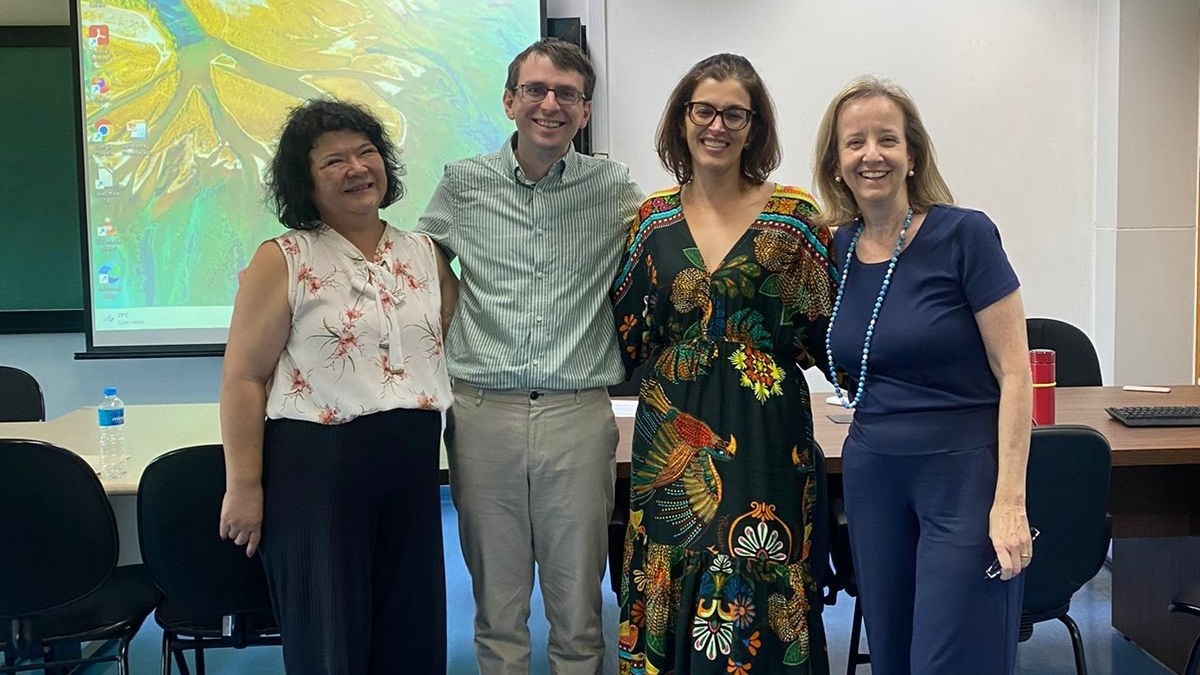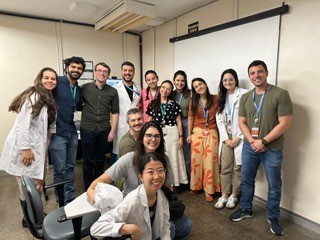Think Global Report 2024 – University of São Paulo
In May 2024, Dr Richard Green visited the Geriatrics Department of the Clinics Hospital, associated community care services, and gerontologists and other interdisciplinary colleagues at the University of São Paulo (USP). The purpose of the visit was to advance research focused on older people living with frailty, with a particular focus on the needs of LGBTQ+ individuals within this population.

"The visit to São Paulo was a step outside my comfort zone that was rewarding in so many ways. I am grateful to the kindness and curiosity of the people I met in Brazil."
During my time in São Paulo, I engaged in various activities that aligned with the aims of our research collaboration.
Departmental meetings and observations

I attended hospital and university departmental meetings where I had the chance to share learnings from the Living and Dying Well research programme. I was also fortunate enough to visit a range of care settings in São Paulo: a geriatrics day hospital, a primary care HIV clinic, and an older people’s reference unit (older person’s referral service in the community). My observations highlighted the importance of communication between tertiary and primary care services, a structural problem with healthcare systems not uncommon globally.
Of particular interest was visiting a new service launched in March 2023, a primary care-based transgender clinic offering holistic multidisciplinary care to older transgender adults, integrating support for managing long-term conditions with mental health and psychiatry services. It was particularly insightful to learn how the clinic addresses the complex needs of this vulnerable population, where social frailty often intersects with physical health challenges.
I was also fortunate to be granted access to USP’s world-leading physiopathology laboratory where the South American continents largest brain bank is held, where studies on brain tissue are advancing research on dementia and other brain pathologies. And yes, I did get to see a human brain in the flesh!
Educational exchange
I gathered valuable insights on the provision of gender and sexualities-affirming care to frail older adults. For instance, I learned about the challenges faced by healthcare providers in Brazil, such as the inconsistent approach to geriatric care across the country and the lack of a structured long-term care system. These observations will inform our efforts to develop training and educational materials and best practices that can be implemented in the UK and Brazil, which is a desired next step following the visit.
Development of joint funding proposal
Together with colleagues at USP, we initiated the development of a joint funding submission to build the evidence base and produce educational resources for better identification and support of specific care needs to older LGBTQ+ individuals. At the time of writing, funding is still being sought for this programme of work.
The visit to São Paulo was a step outside my comfort zone that was rewarding in so many ways. I am grateful to the kindness and curiosity of the people I met in Brazil.
